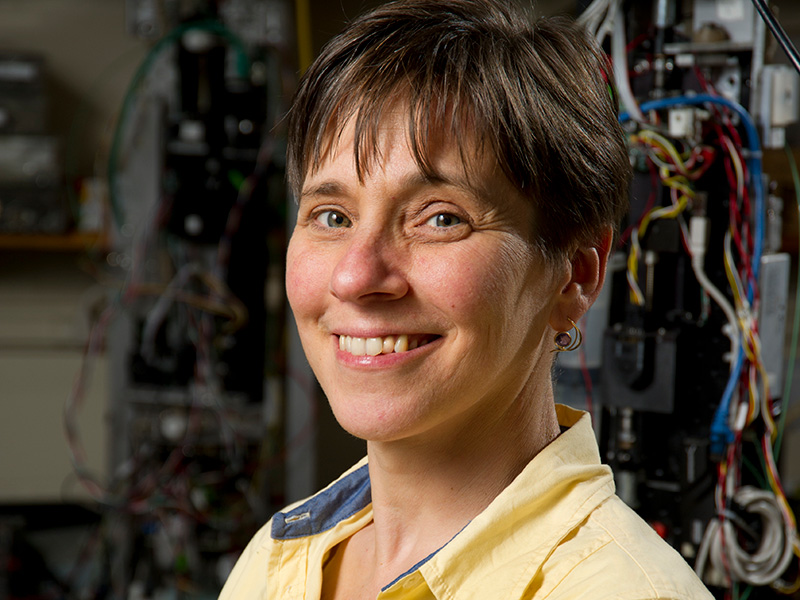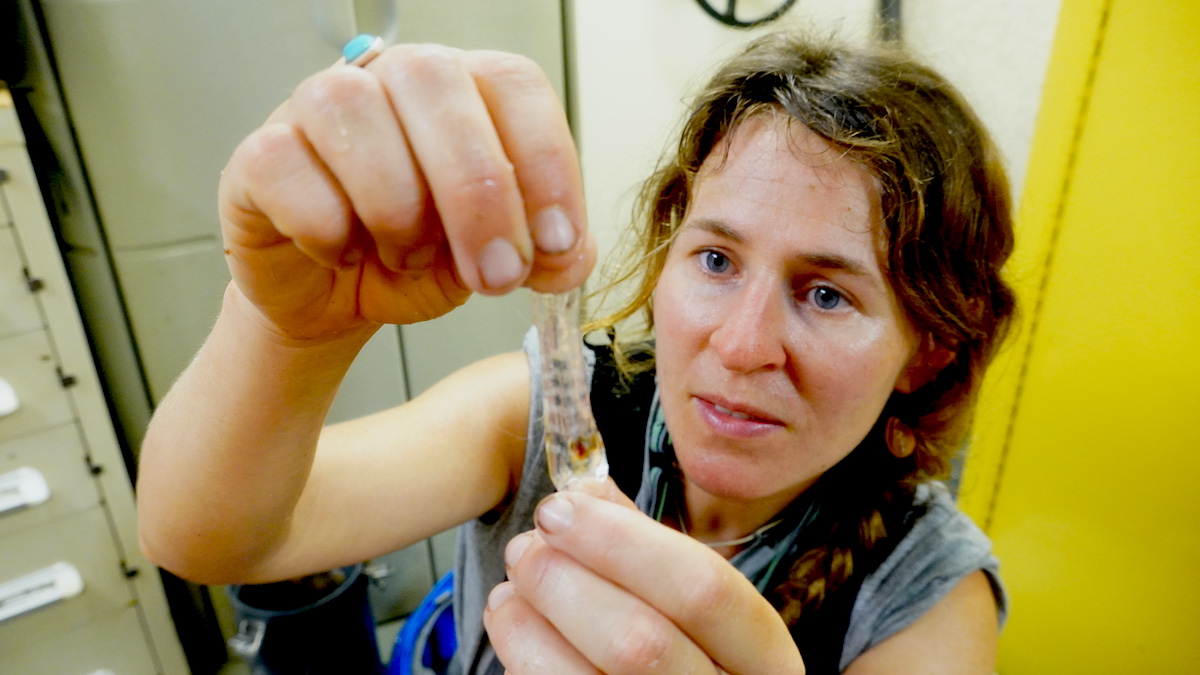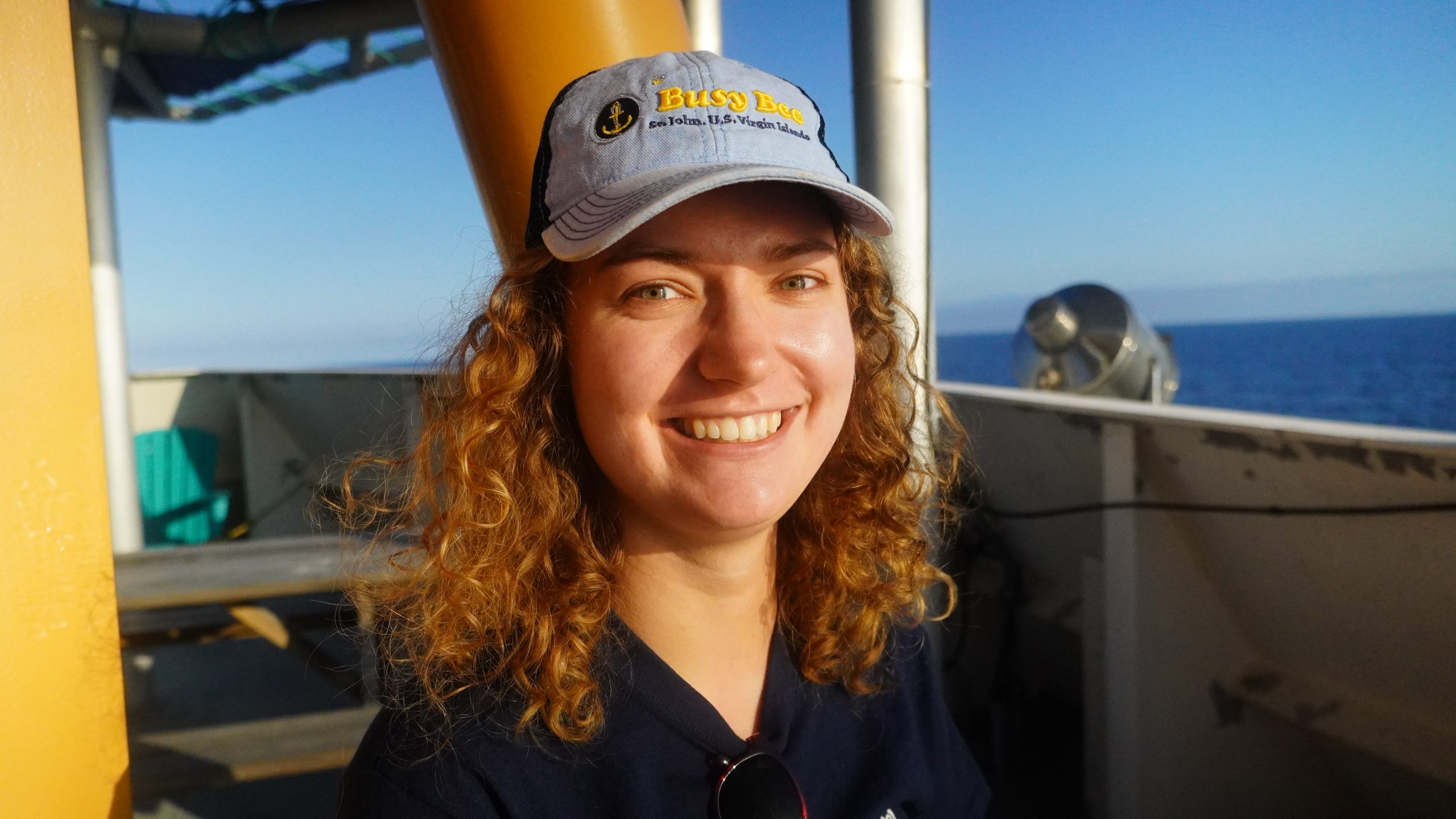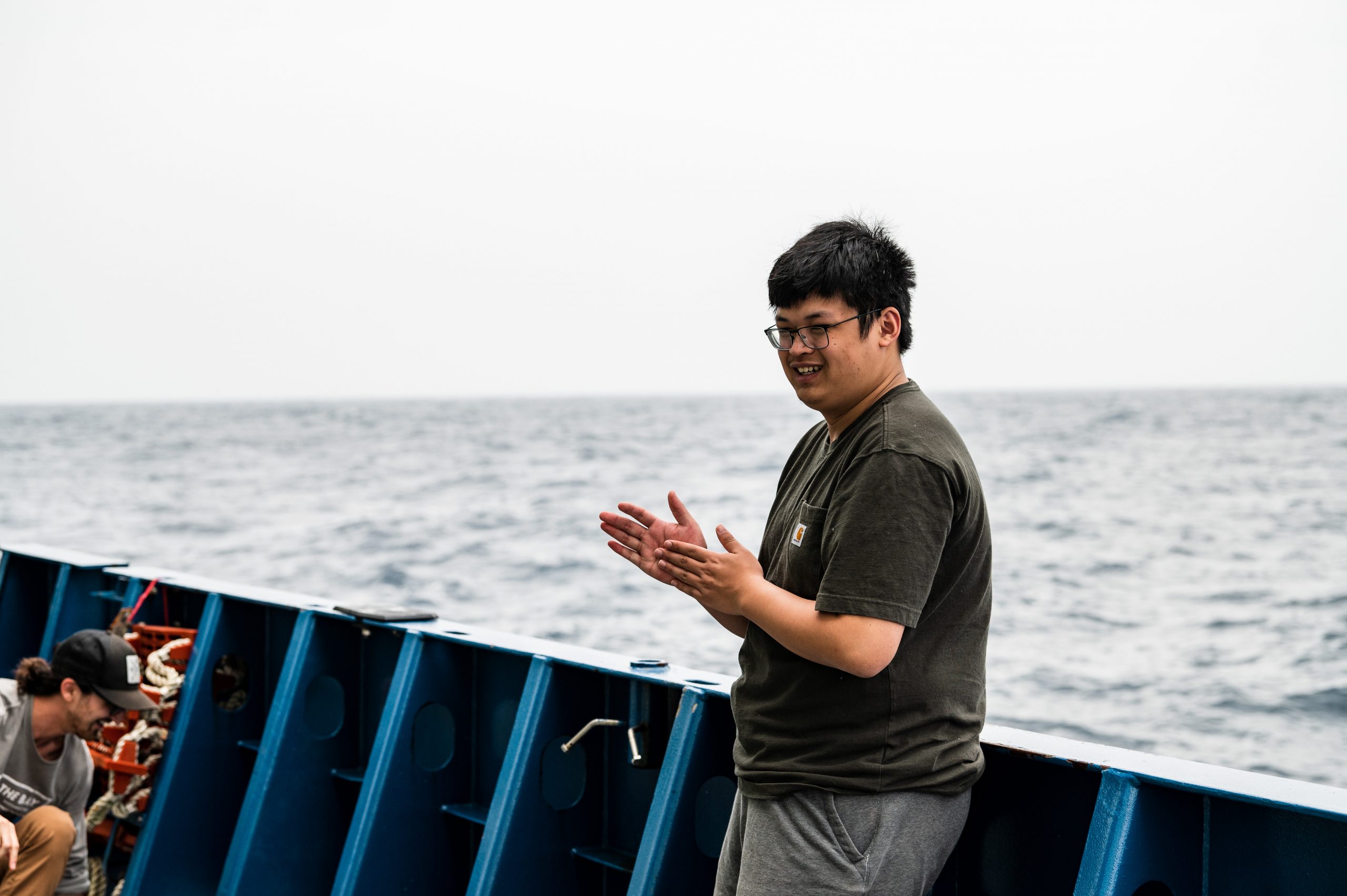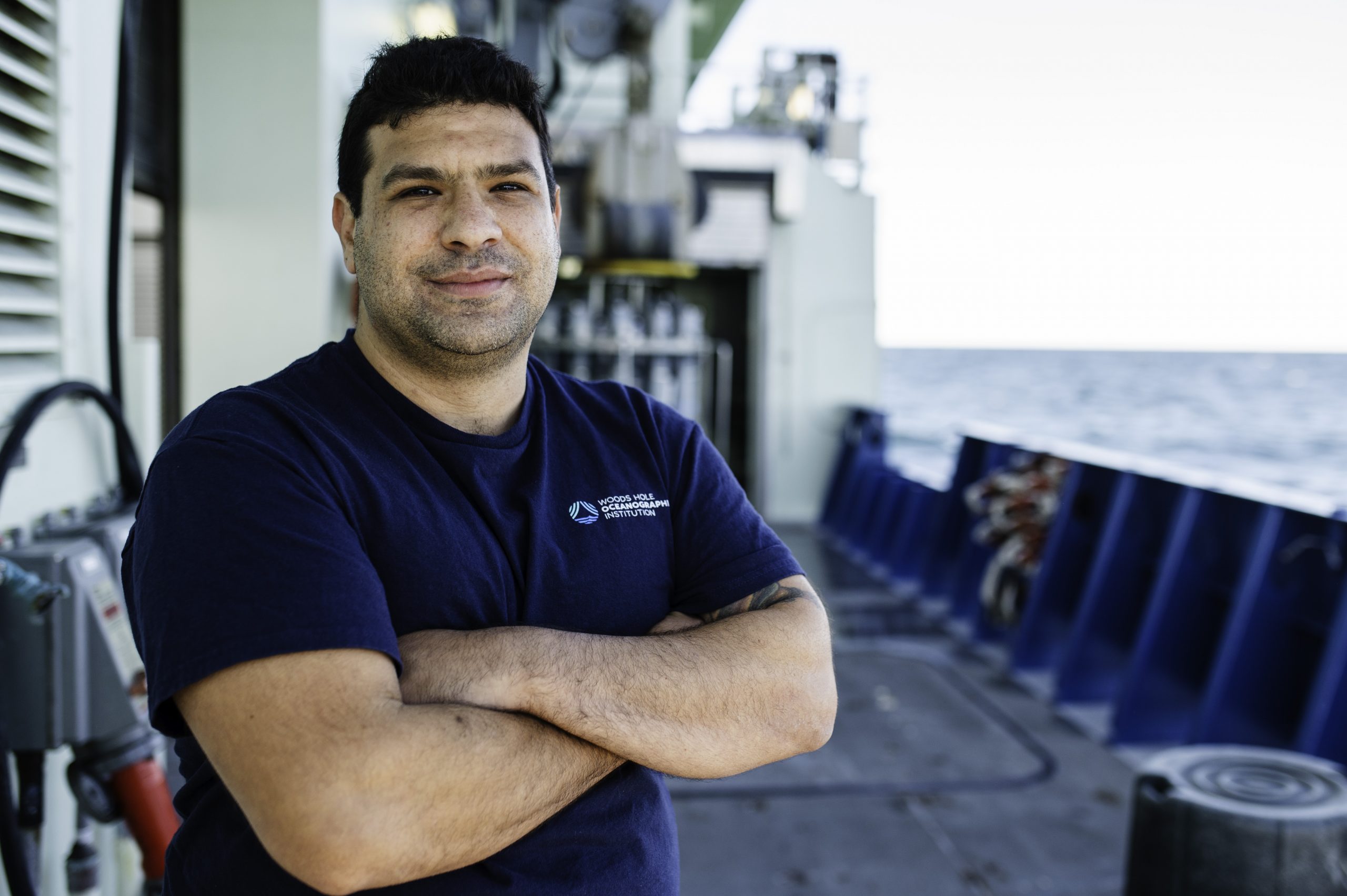Spotlight: Di Jin December 2, 2022
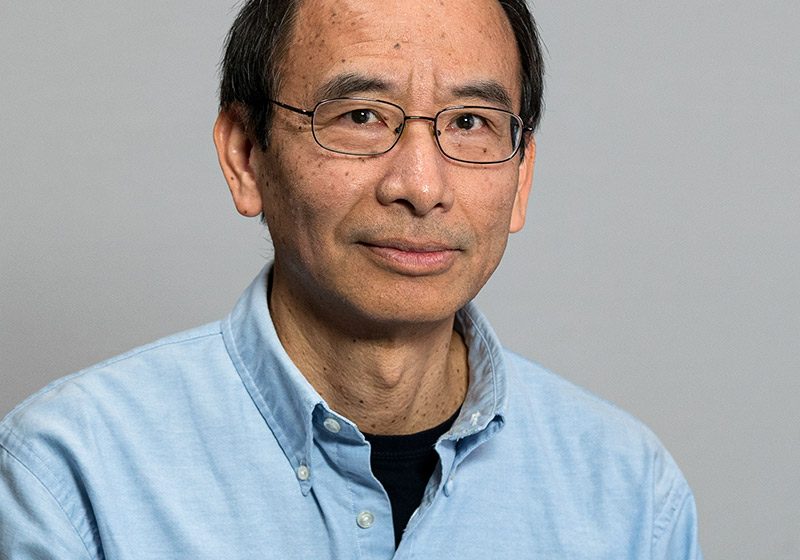
For Di Jin, economics is about far more than just goods and services: it’s a way to quantify things that are otherwise intangible. Case in point: in 2020, Jin published a major report that calculates the value of new scientific findings about carbon and climate change (answer: about half a trillion dollars). For the OTZ project, he’s working to predict the financial benefits of protecting the twilight zone—and the potential costs of exploiting it in the future. In this interview, learn how Jin collaborates with a team of scientists and engineers, how ocean economics can inform policy, why he’s passionate about mathematicians, and more.
When did you first realize you wanted to study the ocean?
This is something you won’t believe. I was in my last year of high school in China, back in the late 70s when the country was still sort of about to open up to the western world. At the time, we didn't really have any kind of western movies. But since we were within the communist bloc, we did get some Romanian movies. I remember watching this one Romanian film about a shipyard [Zile Fierbe, 1975], and there was a scene where the chief engineer rides off on a horse to get away from all the frustrations of his work. It was this gorgeous slow-motion shot of him just riding on the beach with the sunlight and the waves behind him. I don’t know why, but something about the scene just fascinated me in regards to the ocean—so I ended up applying for a degree in ocean engineering. It’s funny, a lot of people wind up getting passionate about oceanography because they’ve seen fish in an aquarium, or have actually had an opportunity to dive on a reef in person. For me, it was nothing like that—just a weird Romanian movie.
How did you get from studying ocean engineering to studying economics?
I’ve always had this interest in the social aspects of ocean science, in particular markets, trade, and decision making based on benefit and cost. I think that’s largely because in the communist ideology that I was raised in, everything is command and control. There are no personal preferences or choices. So when I had an opportunity to do my PhD at the University of Rhode Island, I realized that my background in ocean engineering put me in a good position to study ocean economy. It meant that I could understand, at least on an undergraduate level, the research that ocean scientists were doing, and understand the data that they generated, But I think the key advantage of an engineering background is sort of the quantitative or computer modeling skills you get—you can really use that to apply economics research to real-world problems.
How so?
Well, pure economics is really closer to philosophy. In some cases, it doesn’t even matter which units you use in the models you create. When you’re an engineer, though, things are much more tangible. A kilo has to be a kilo. All the units and measurements on paper have to match up to the real world, or a bridge will crumble. Being able to study economics with that kind of specificity has been really valuable when collaborating with the scientists at WHOI.
How are you applying those skills to the OTZ project directly?
I’ll put it this way: Thomas Robert Malthus, who was an English economist and political scientist in the late 1700s, had this theory that while population grows exponentially, agricultural production can only increase in a linear fashion. In other words, the global population will eventually outpace food production, and there’s no way the world can escape that. That was more than 200 years ago. Today, the rate of food production more closely matches the growth of population, but it’s still not quite there yet. In order to close the gap, people are starting to use aquaculture as an alternative to grow more protein—but to support that at a large scale, you need a way to feed all those fish you’re farming. That’s where the twilight zone comes in. Some studies suggest that there’s maybe 10 times more biomass than we thought down there, mostly in the form of tiny stuff that people can’t eat, so exploiting that as a feedstock is really attractive. The Norwegians are already testing ways to do it.
Fishing the twilight zone raises two issues, though. First, what's the impact on the biological carbon pump that's regulating climate? And second, since commercial fish like tuna and swordfish feed in the twilight zone, how will harvesting their food supply affect existing fisheries? We’re working on models that take all that into consideration and predict possible outcomes, so governments can make informed policy for the twilight zone. We don’t yet know the environmental and economic consequences that our actions will have, but if we don’t think about them now, we’ll regret it later.
Why do you think WHOI is a good place for an economist?
In a lot of academic environments, the economics department can be sort of an echo chamber, where all the people involved are doing similar things. There’s sort of a critical mass. But here, I’m constantly interacting with scientists doing all sorts of unique research. I can walk over and talk to Dana [Yoerger], who is one of the best people to tell you about marine robots. I can go talk to Ken [Buessler], who is probably the leading biogeochemist studying the ocean carbon pump. WHOI is one of the few places in the country, or even the world, where an economist can have those kinds of interactions. Even just chatting about their research can help shape my own work—it helps me take really general qualitative ideas and turn them into quantitative measures to predict human impact on the ocean. There’s also broad recognition at WHOI about the importance of integrating research in policy with research in the natural sciences. I really appreciate that element.
What do you do when you’re not studying economics?
I like to read the biographies of mathematicians. I find them fascinating—historically, those folks are quite unique, and some of them had to really struggle to do their work. There’s one I especially like called A Mathematician’s Apology by G.H. Hardy, a British mathematician in the early 1900s. He was extremely proud by doing something totally pure, theoretical, with absolutely no social relevance. During the World Wars, pure math could not be used for anything practical, like making better artillery, so he was largely written off. People like that don’t really care. They’re only interested in pure ideas—but often, years later, the math they develop ends up being incredibly useful, like in making some of the core algorithms used by places like Google. It's kind of nice to go back and just think about something that's pure reason, though.







